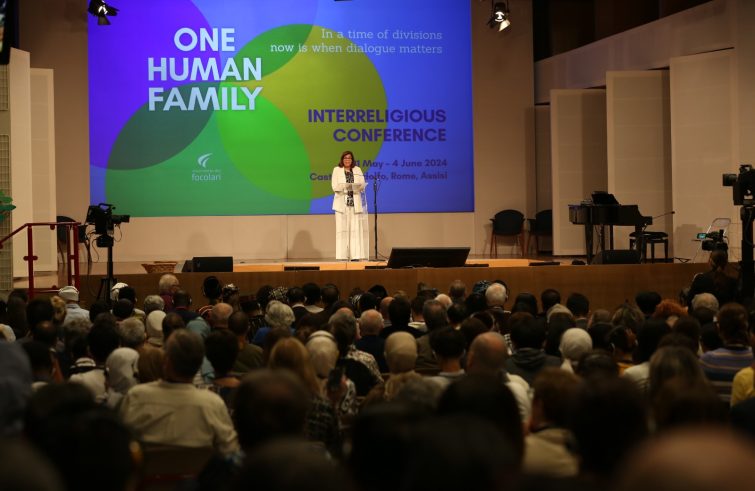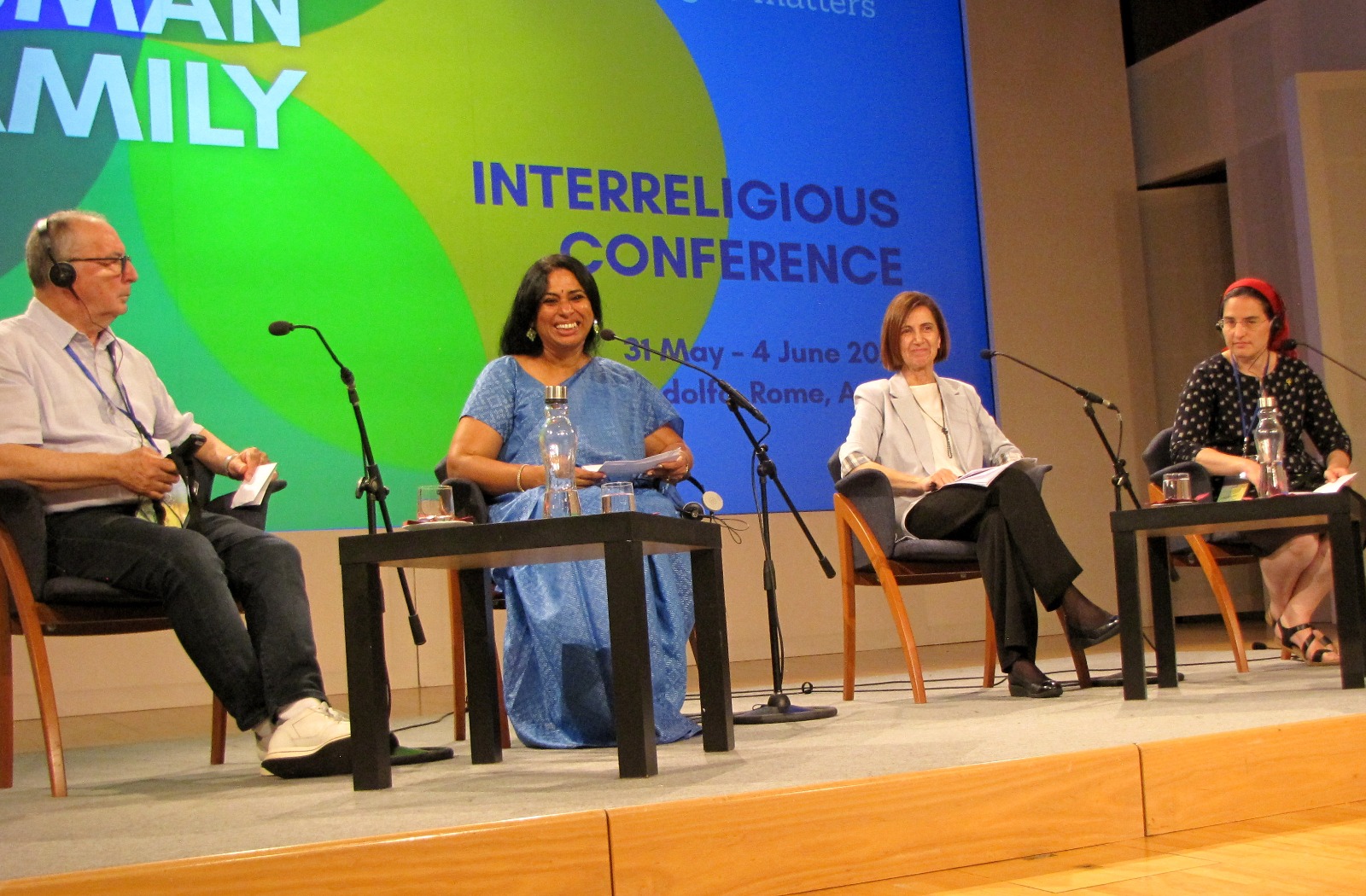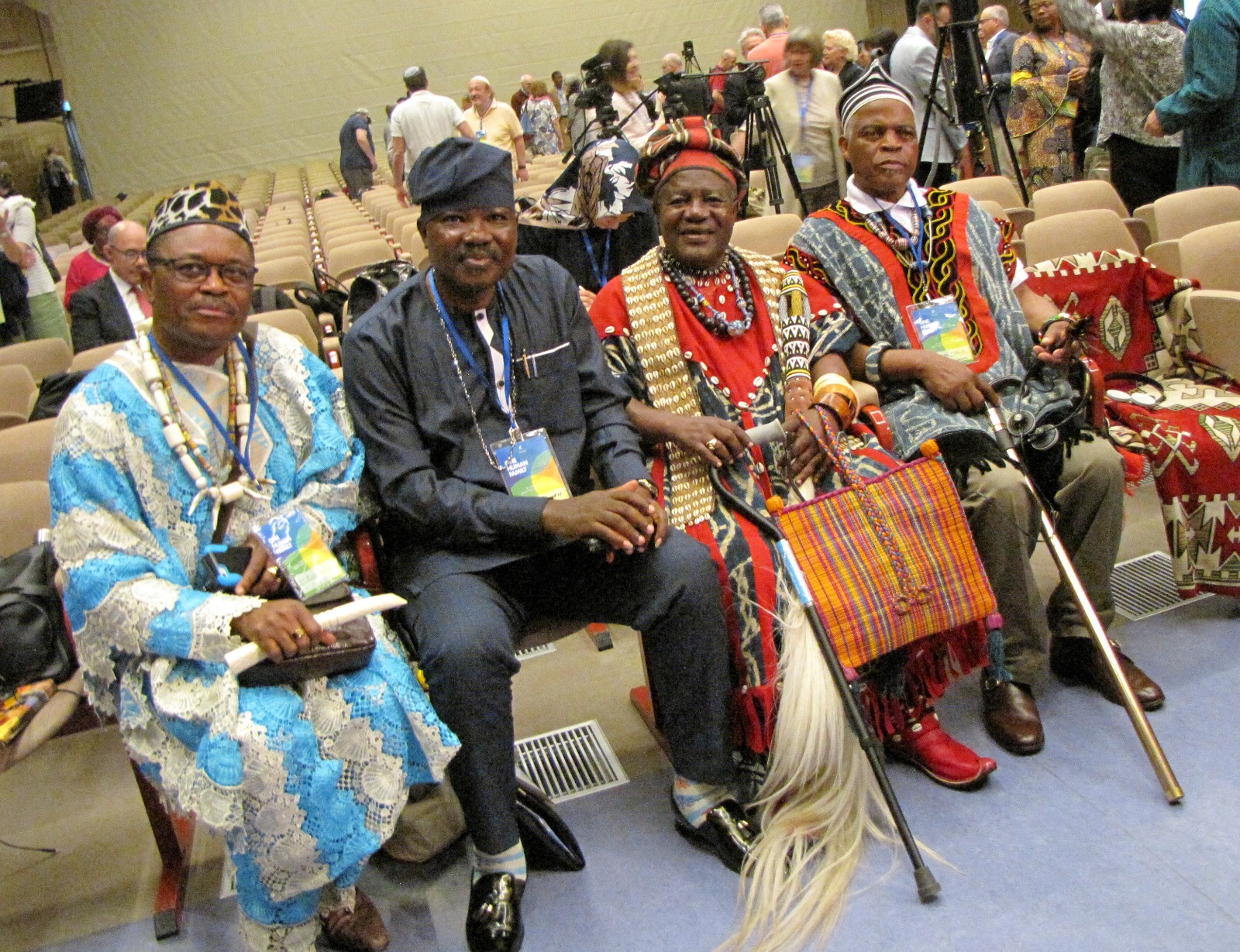
“Your witness is a source of joy and a source of consolation, especially in this time of conflict, when religion is often misused in order to fuel division”. Indeed, interreligious dialogue “is a necessary condition for peace in the world, and so it is a duty for Christians as well as other religious communities” Those were the words pronounced by Pope Francis to the participants in the International Interreligious Conference, organised by the Focolare Movement. The event, which officially opened in Castel Gandolfo on Friday 31 May, will close in Assisi on Tuesday 4 June, following an audience with Pope Francis in the Vatican. “We are more than 400 people representing the world’s religious faiths. Jews, Muslims, Sikhs, Hindus, Baha’i, traditional African religions. From almost 40 countries worldwide”, Antonio Salimbeni, co-director of interreligious dialogue for the Focolare Movement, told SIR. “It is a gathering of people who have already walked together with the spirituality of the Focolare movement.”
This experience is animated by the Holy Spirit who, over the years and in the wake of Chiara Lubich’s charism of unity, has paved ”paths of dialogue and encounter, some of them unexpected”. For example, in Algeria, where, more than fifty years ago, an entirely Muslim community adherent to the Movement was founded.
“We reunited here after many years since our last meeting. It is an incredible experience to be together as a family and in the presence of the Almighty,’ said Salimbeni. The title chosen by the organisers for the conference is ‘One Human Family’. The three-day event took place at the Mariapolis Centre in Castel Gandolfo. Participants exchanged views in plenary sessions and thematic workshops on a range of challenges facing humanity today. The themes of the meetings were: “Called to Weave Peaceful Relationships”; “How Religions Can Contribute to Peace in Interpersonal and International Relations”; “The Impact of New Technologies and Artificial Intelligence on Human Relations and Interreligious Dialogue”; “Challenges and Opportunities of an Economy for Peace”; “Religions and Peace with Creation”. “We touched on very topical issues,” said Salimbeni, “but what was most interesting were the speeches and insights that people of all religions and from all parts of the world offered on the various themes.”
 This is a very dark moment in history. There are many armed conflicts and, unfortunately, there is also the threat of a nuclear war on the horizon. What has emerged from the various meetings?
This is a very dark moment in history. There are many armed conflicts and, unfortunately, there is also the threat of a nuclear war on the horizon. What has emerged from the various meetings?
The theme of peace and the role that different faiths can play in building bonds of brotherhood at this delicate time was widely discussed. People living in war zones gave testimonies of conflicts, showing that it is possible to build peace even in the midst of great suffering. The Pope encouraged us to continue moving forward, always keeping our gaze fixed outwards. Interreligious dialogue – he said – is a necessary condition today. These are very encouraging words. After the audience I saw the participants full of joy for having encountered the Pope and eager to continue in this direction.
But how can peace be built in a world that seems to speak only of arms and war?
Special emphasis was placed on the personal and relational aspect of peace. This is precisely what we have experienced in these last days among Jews, Muslims, Buddhists and Christians. We also discussed geopolitical issues and the steps needed to build this peace, but the emphasis was above all on the actual experience we are living. Bearing witness to peace, first among ourselves, and then to the world. Moreover, it is the concrete encounter with the other that transforms the many polarisations into relationships.
 Who is Pope Francis for the followers of non-Christian faiths?
Who is Pope Francis for the followers of non-Christian faiths?
In my view it is all about the love they have towards Pope Francis. They know him. They hold him in high esteem. A Hindu professor said to him: “I want to bring the theme of Laudato si’ to my university. There is indeed much love. They welcomed him with unending applause. The Pope today is a leader who speaks of peace.
What is the significance of the visit to Assisi today?
First of all, it is a pilgrimage that is holds great value for all faiths. It means setting out to reach a destination together. And secondly, it is the city of Francis, the apostle of peace and integral ecology.












